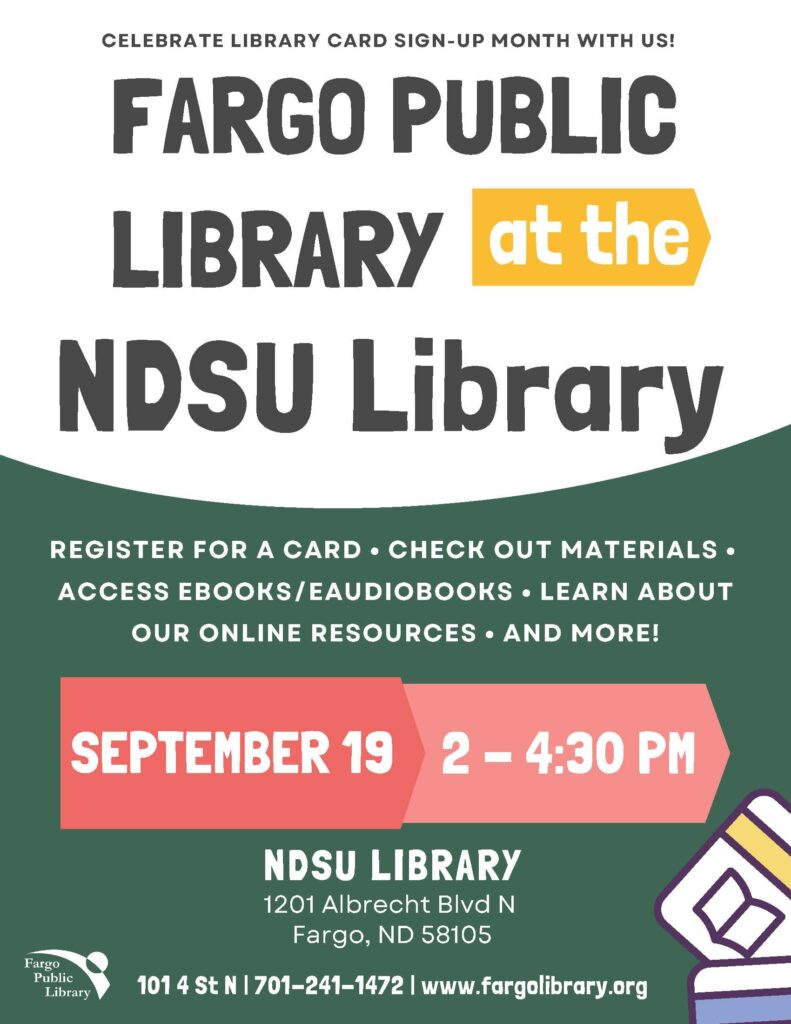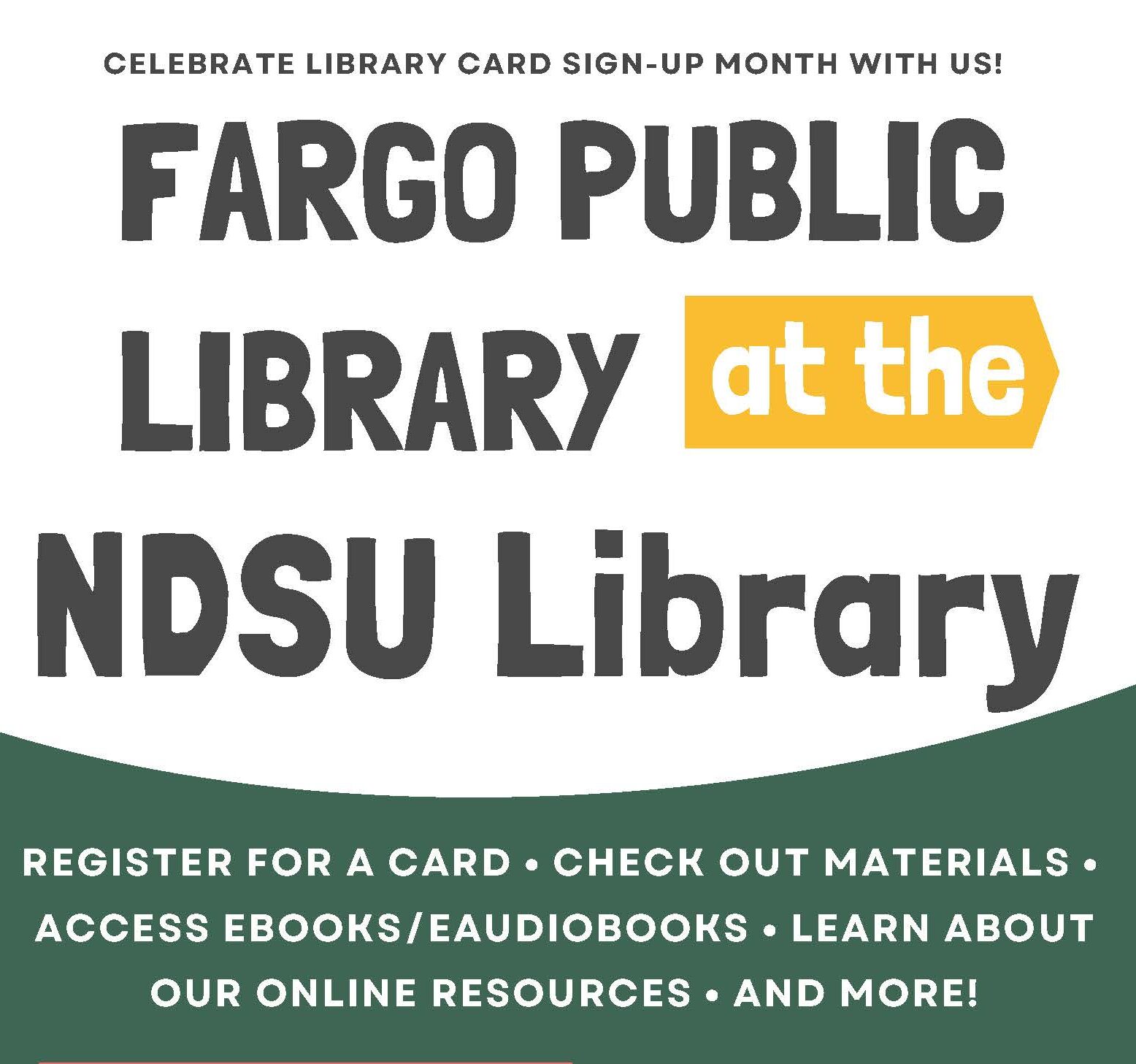Fargo Public Library cards available to NDSU students

North Dakota State University Library is hoping that students will sign up for a public library card during an event on Monday September 19. The public library offers additional resources and can connect people to the community. They are holding this event during Banned Books Week, which raises awareness for censorship in libraries.
The month of September is Library Card Sign-up Month. NDSU students, staff and faculty are eligible for Fargo Public Library cards, which are free of charge. Fargo Public Library is located in downtown Fargo and has resources that can be helpful to the NDSU community. They hold resources including e-books, streaming movies, databases, study rooms, meeting rooms and community events.
“Libraries connect you not only to resources but also to community groups and other resources in the community that you wouldn’t necessarily come into contact with otherwise,” said NDSU’s Resource Acquisition and Management Librarian Barb Davis.
The public library also contains more leisure reading available to students. The NDSU library tends to fit the needs of the campus population, while the public library serves everyone.
A Fagro Public Library card can also benefit students for after graduation, as it can be a constant source of information. “I kinda want to get students thinking that no matter where they go, [a library card] is something they should always pursue,” said Davis.
Fargo Public Library sign-ups will be available to students on Monday September 19 from 2-4:30 at the NDSU Library entrance. Students need to bring a photo ID with them to get a library card. During the event students can win prizes including a banned book.
“Anyone who signs up for a public library card can be entered into a prize drawing and then we are also going to have a banned books challenge game that students can play to win additional prizes,” said Davis.
Banned Books Week is an annual event that began in 1982 that teaches about the dangers of censorship in libraries.“Banned Books is an event to draw attention to censorship efforts but also efforts to counter censorship,”said Government Information Librarian Susanne Caro.
Censorship often occurs in public libraries and schools, typically high school and below. This occurs when others do not agree with the content in books and ask for it to be removed from the library. This content usually appears “with subject matter that people don’t agree with or language they don’t agree with,” said Caro.
Banned books week also addresses other challenges that libraries face including vandalism of materials and the laws surrounding censorship in libraries.
Many of the books getting banned are those that address social issues, or divisive concepts. This included books regarding race, sexuality and gender. Most of the books are getting taken off the shelf because some do not agree that children should be reading the content.
Caro explains that banning books can be harmful because certain histories are being removed from libraries. “If you are only ever given one view of history, where everything else has been cleaned out, then you are not really getting an honest perspective of what’s happened in the past.” said Caro,“and you’re are also losing a lot of context for what happens in the future.”
This also leads to a lack of content and not being able to access certain information. Although NDSU has not had problems with banning, many libraries for people under 18 have faced challenges. “I think the challenges are more prevalent in public libraries or school libraries than they would be at a university level,” said Davis. Bans can also be put on databases or they can prohibit internet access.
During Banned Books week the library will work to spread awareness of this issue and help students get connected to the Fargo Public Library.
